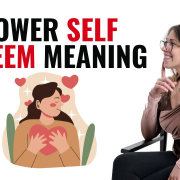Couples Coach: Why Every Couple Needs One
Couples Coach: Why Every Couple Needs One
A couples coach helps couples and also persons individually in marriage and love engagements. They can provide you with methods to increase closeness and pleasure as well as instruct you on how to resolve conflicts. Without a doubt, we can all benefit from talking to a couples coach.
Find out what you can expect to gain if you start seeing a couples coach in your area or even online, how it feels to talk to an expert on couple and marital topics, and everything else you might be curious about.
Definition of Couples Coach
A couples coach may assist you in establishing goals together, addressing any issues that could be preventing you from achieving these objectives, and enhancing your daily relationship. They can also work separately with partners or work only with one partner because the other one is unwilling to seek counseling.
The purpose of coaching is to encourage individuals to identify and achieve their objectives and ambitions. This is the same procedure, yet it takes place inside the partnership framework in couples coaching. A relationship coach may assist a couple in finding answers by helping them understand what’s bothering them in their relationship and their goals.
Through couples coaching, you have the potential to grow and find fulfillment both within and outside of your relationship. It’s a journey that can inspire and motivate you, as individuals seeking couples coaching often have a clear desire to strengthen their relationship and are actively seeking assistance to achieve this.
Benefits of Couples Coaching
Coaching is a flexible approach that can be applied in many different ways and areas. In the context of the couple’s coaching, the pair will identify them, either in front of the session or in real-time.
Understanding the Main Challenges in Your Relationship
Recognizing the barrier to change is the first step toward making a change. This may seem simple, but it can be challenging to pinpoint the issue because of the intricacies of a relationship. Couples coaching can assist you in taking a deep breath and seeing behind the surface to identify the real barrier. You may start working on getting over it as soon as you identify what it is.
Improve Communication
Communication is at the heart of all relationships, and it can often be a stumbling block when something is wrong. There may be a need for more communication or a conflict in communication style. A relationship coach can use questioning techniques to help you identify the problem and the best way to move forward. Together, you can create a plan to improve communication and reach your relationship goals.
Work on Vision for Your Future
Conflict can arise when two persons in a relationship have radically divergent values and future goals. Yet, sometimes, we need more time to investigate and find out whether this is the case. Couples counseling offers the chance to identify your guiding principles and ideal future self. With your coach’s help and advice, you may work on resolving any conflicts and aligning your values and future vision.
Get to Know Each Other Better
Although it can arise in any relationship, long-term couples are more likely to have this issue. Since we are all constantly evolving, there may be moments when you feel that you don’t know your spouse as well as you once did or that you take one other for granted. Couples counseling allows you to rediscover one another and find little ways to show each other greater appreciation. This promotes a happier relationship overall by removing any misunderstandings that typically arise.
Couples Coach vs. Dating Coach
While a dating coach focuses more on the first phases of meeting and dating, a relationship coach assists you in achieving pleasure in long-term partnerships.
A dating coach helps you become more confident in your ability to have conversations. They show you how to transition from shallow discussions to more meaningful and exciting exchanges. Alternatively, they show you how to flirt on a first date without appearing obnoxious or needy. A dating coach may also teach you how to be more sensual and provide you with tools for seduction. Finding a relationship coach who specializes in both sex and dating might be beneficial because not all dating coaches help with sexual confidence.
On the other hand, a couples coach encourages you to be more genuine and close with your current spouse while also assisting with communication improvement. They provide skills like communicating empathetically, being vulnerable, and listening intently. More importantly, they may demonstrate how your well-established character methods obstruct your ability to form close relationships. With the help of a competent relationship coach, you may change your unpleasant routines to dynamic, present-day interactions.
Before You Start Seeking a Couples Coach
Use our search engine to locate a relationship coach if you’ve decided to pursue couples counseling. You may go through their profiles to learn more about each person and how they approach this task. Once you’ve connected with someone, contact them to schedule a consultation.
Here, you may discuss your coaching goals and learn more about them. This will guarantee that you are working with the appropriate coach and that this is your best strategy. You can then discuss future meetings, including their frequency.
When you approach coaching with an honest and open mind, you can make the most of your time together and begin the path to a more satisfying and joyful relationship.
Conclusion
Lack of time, routine, and everyday life in a relationship can all lead to love fading away. Relationship crises are almost inevitable when there is a lack of trust and an unappreciative manner of communicating. Relationship issues can arise even in good unions due to ingrained communication and behavior habits or unreasonable expectations. To restore ease in their relationship, many people, however, never even consider couples counseling. connection to the experience.
Old or unresolved frustrations can lead to withdrawal in one or both relationships. However, couples counseling may assist in identifying possible points of contention in the partnership and resolving long-standing issues. It is really important to have the capacity to handle challenges and resolve problems in a suitable way.
About Life Coaching and Therapy
Life Coaching and Therapy (LCAT) is a therapy and coaching practice that transforms our clients lives through our flexible. Multi-technique approach and pleasure-skills training provided by systematically-trained and licensed therapists!
 Get to know our founder and owner, Amanda Pasciucco, (a.k.a. The Sex Healer) PhD, Licensed Marriage and Family Therapist (LMFT), and an AASECT Certified Sex Therapist (CST) that has developed innovative therapy programs and therapy videos that get results.
Get to know our founder and owner, Amanda Pasciucco, (a.k.a. The Sex Healer) PhD, Licensed Marriage and Family Therapist (LMFT), and an AASECT Certified Sex Therapist (CST) that has developed innovative therapy programs and therapy videos that get results.
Our team of compassionate, licensed therapists and certified sex therapists help all clients who visit us for a variety of personal, relationship, intimacy and sex problems.
LCAT provides on-site appointments, as well as video chat and text therapy programs.
Learn more about how LCAT can help improve your life at What We Do.






















